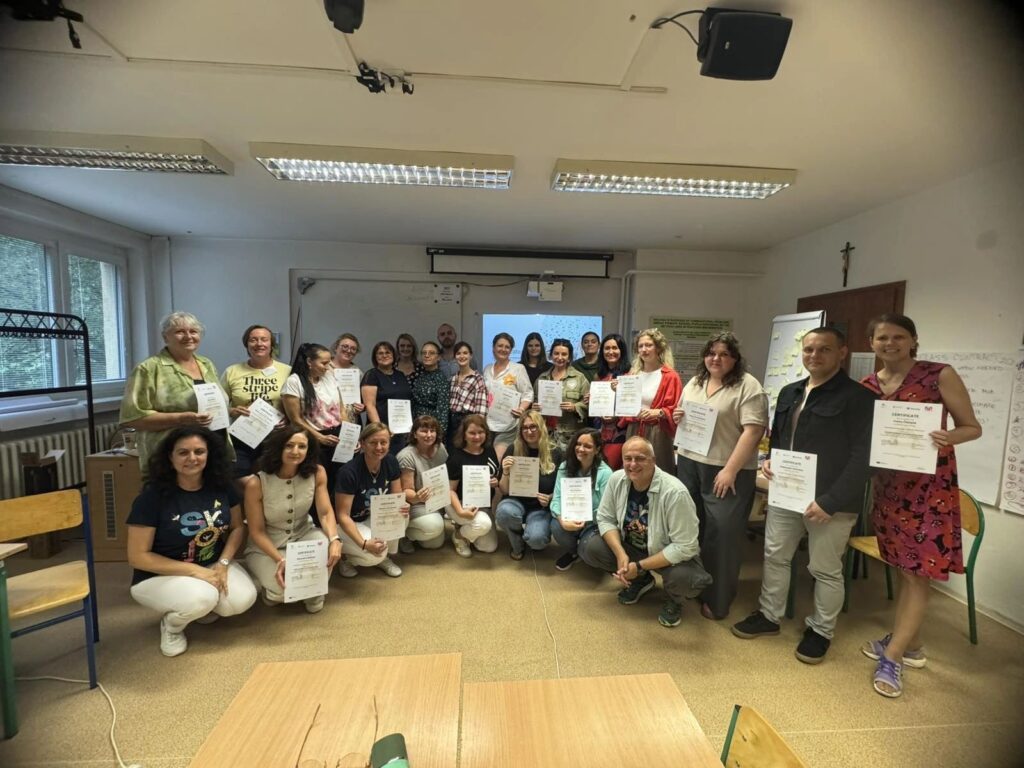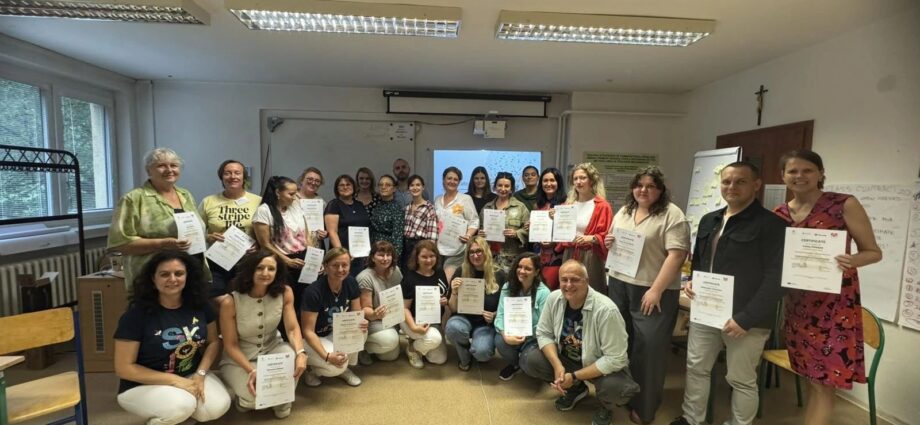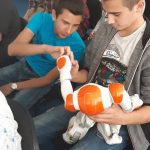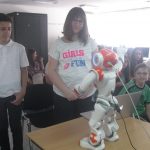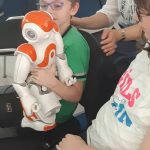As part of the NELCA project, the Center for Innovations and Digital Education – Dig-Ed, in partnership with Harmony Academy from Slovakia, successfully delivered the blended training course “Innovative Technology in the LCA Classroom.” The course was developed based on a comprehensive needs analysis involving educators from North Macedonia, Slovenia, Slovakia, Lithuania, and Latvia, with the aim of addressing their practical needs and challenges in integrating technology into learner-centered teaching practices.
The training aimed to equip teachers with hands-on experience and practical strategies for using innovative technologies to enhance student engagement, collaboration, creativity, and autonomy. It followed a blended format, combining asynchronous online preparation with an intensive three-day onsite workshop that formed the core of the learning experience.
Prior to the onsite sessions, participants engaged in preparatory online tasks. These included reviewing the course structure and objectives, reading and watching pre-course materials, creating accounts on the recommended tools, and introducing themselves via a shared Padlet board. The introductory phase also included a set of short instructional videos, specially developed to demonstrate practical ways each digital tool could be integrated into teaching. These videos were made available on a dedicated YouTube playlist and helped participants gain confidence and familiarity before the hands-on sessions. https://www.youtube.com/playlist?list=PLixCqUMszvglRhNXwb4w5bBmWjUrtmuBz
The onsite component of the training, held over three consecutive days (from 6th until 8th of July) in Ruzomberok, Slovakia, offered a dynamic and highly interactive environment for exploring the pedagogical use of digital tools. Each day focused on a specific theme and included a structured blend of short presentations, hands-on activities, group work, tool demonstrations, and reflective discussions.
Day 1: Enhancing Collaboration and Engagement with Digital Tools
The first day focused on how digital technologies can support collaboration and increase student engagement in learner-centered classrooms. The session began with an interactive icebreaker activity, followed by group discussions on the pedagogical reasons for using technology.
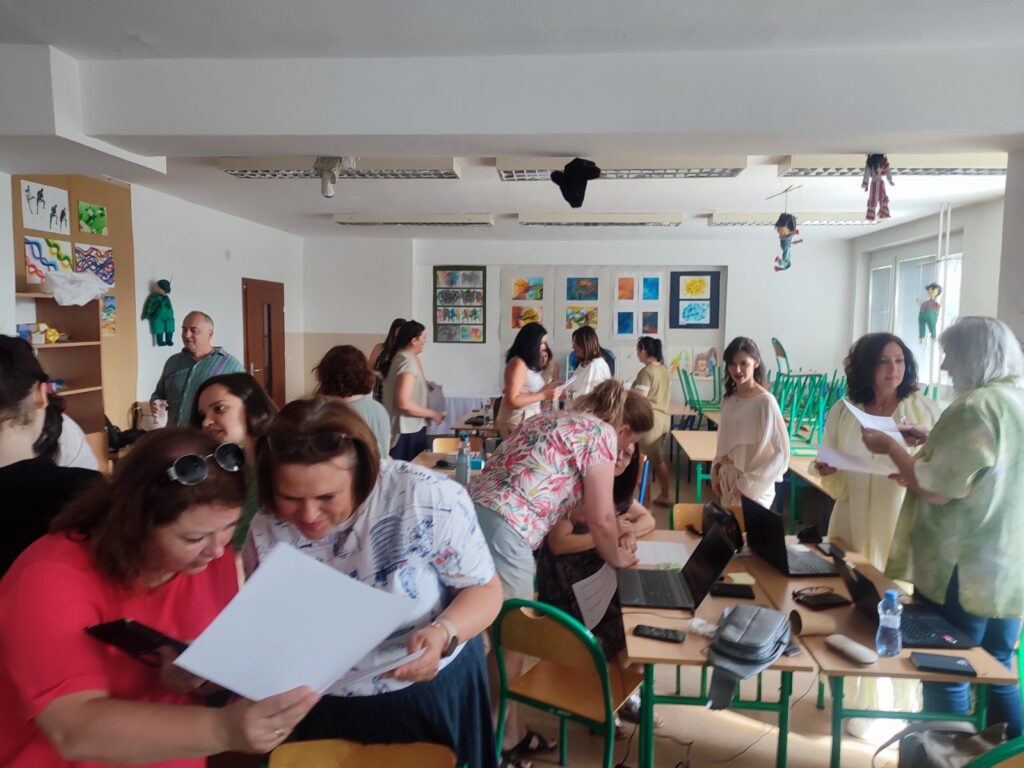
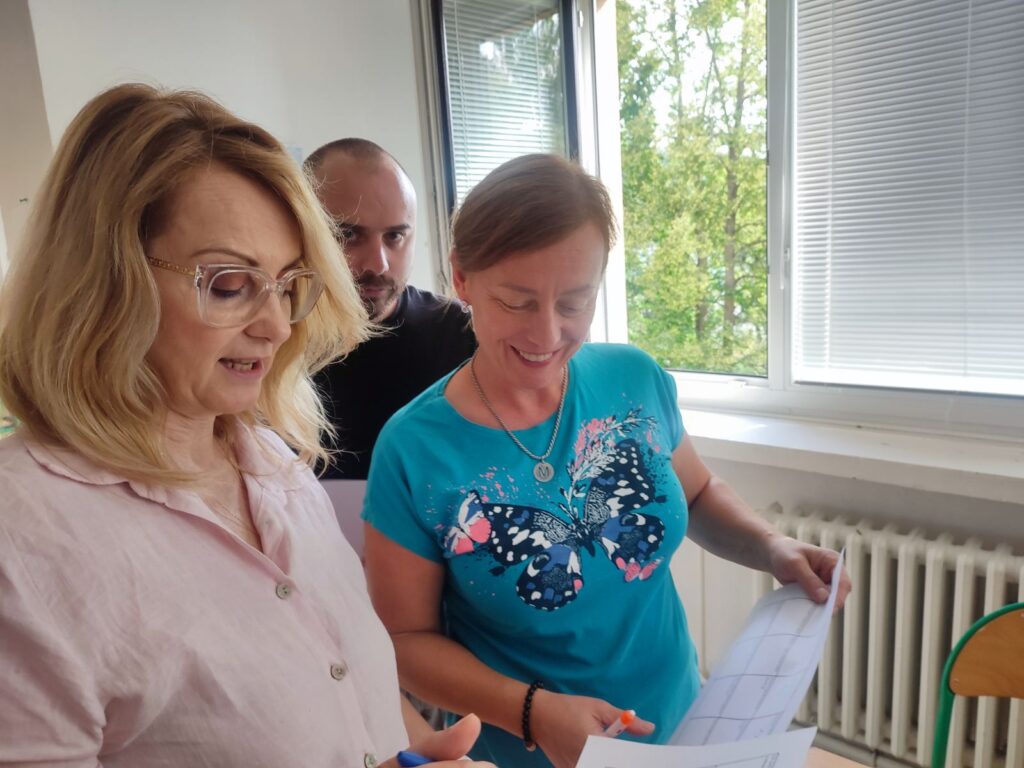
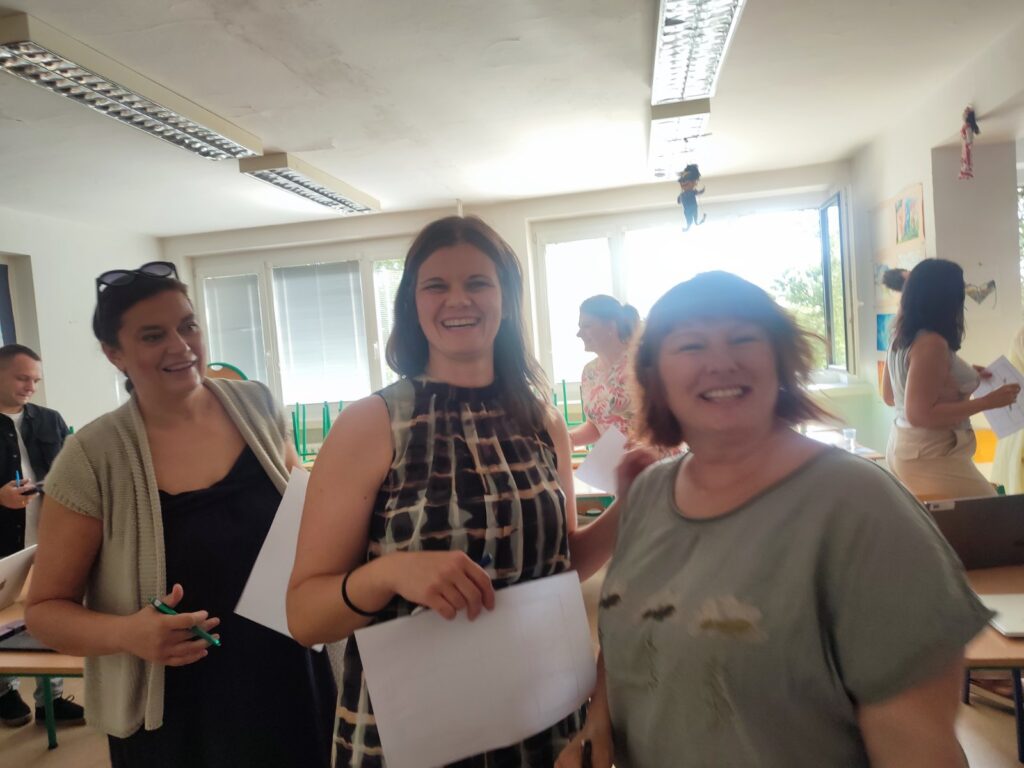
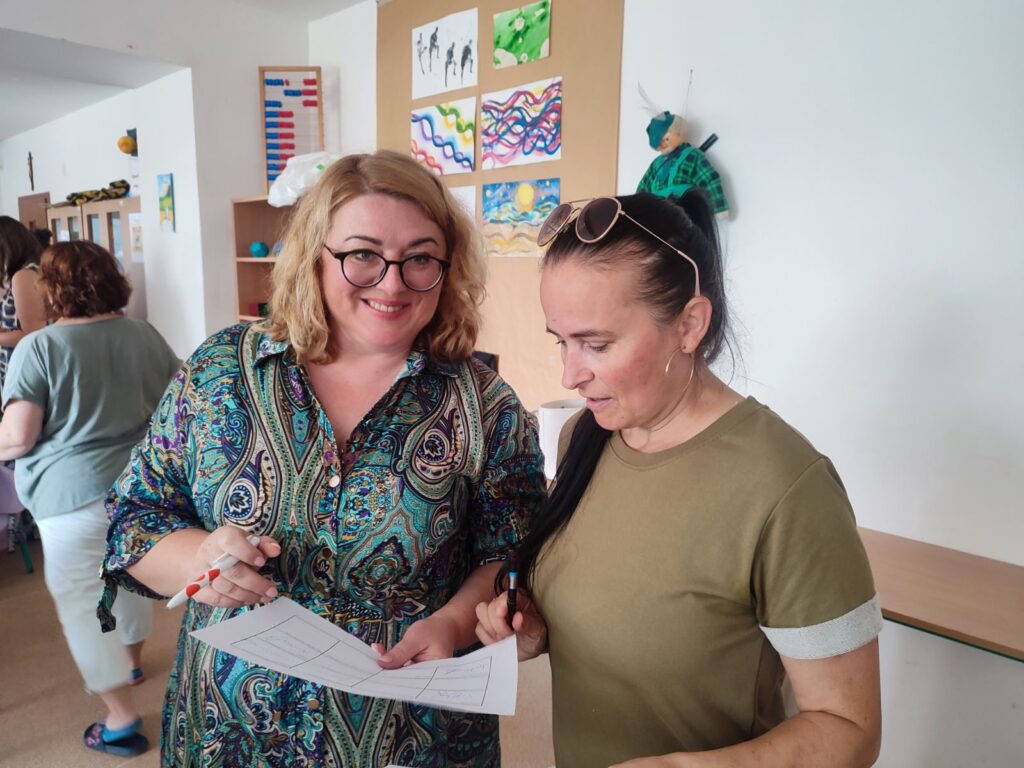
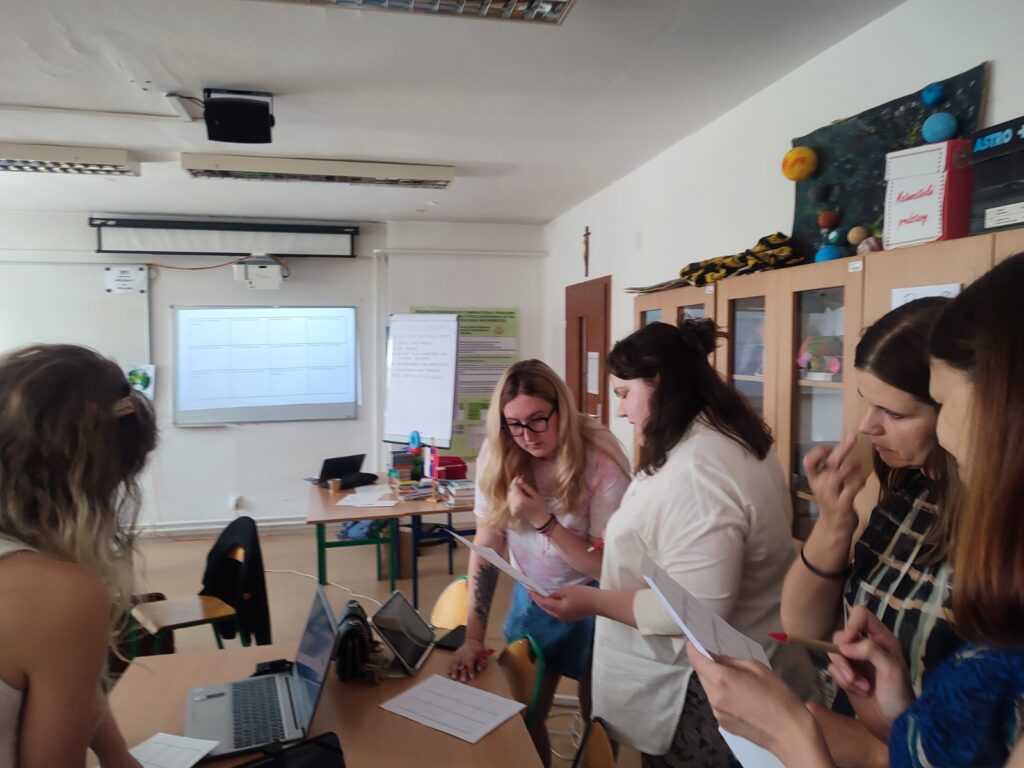
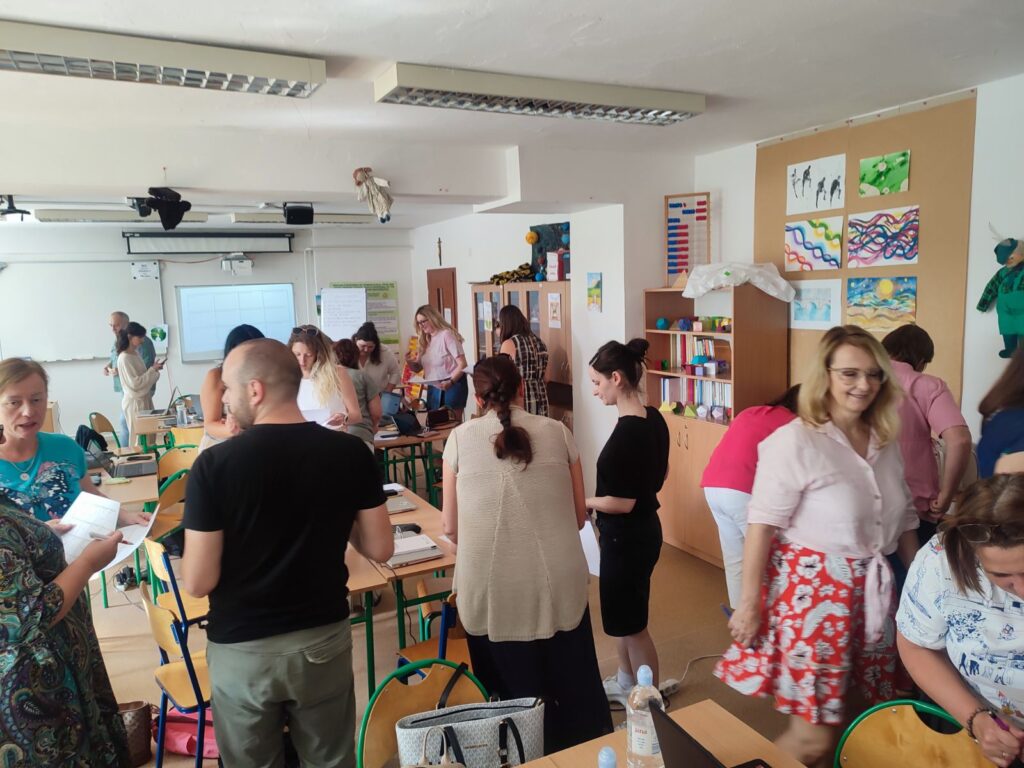
Participants explored how collaboration can be fostered using tools such as Miro (for real-time digital brainstorming and group planning), and discussed concrete strategies for classroom implementation. During the hands-on workshop, participants used Genially and Nearpod to design interactive, technology-enhanced learning materials that could be used across various subjects. These tools allowed them to create personalized, multimedia-rich content aimed at boosting student motivation and participation. The day concluded with presentations and peer feedback, enabling teachers to learn from one another’s approaches and reflect on how such tools can be meaningfully integrated into their own classrooms.
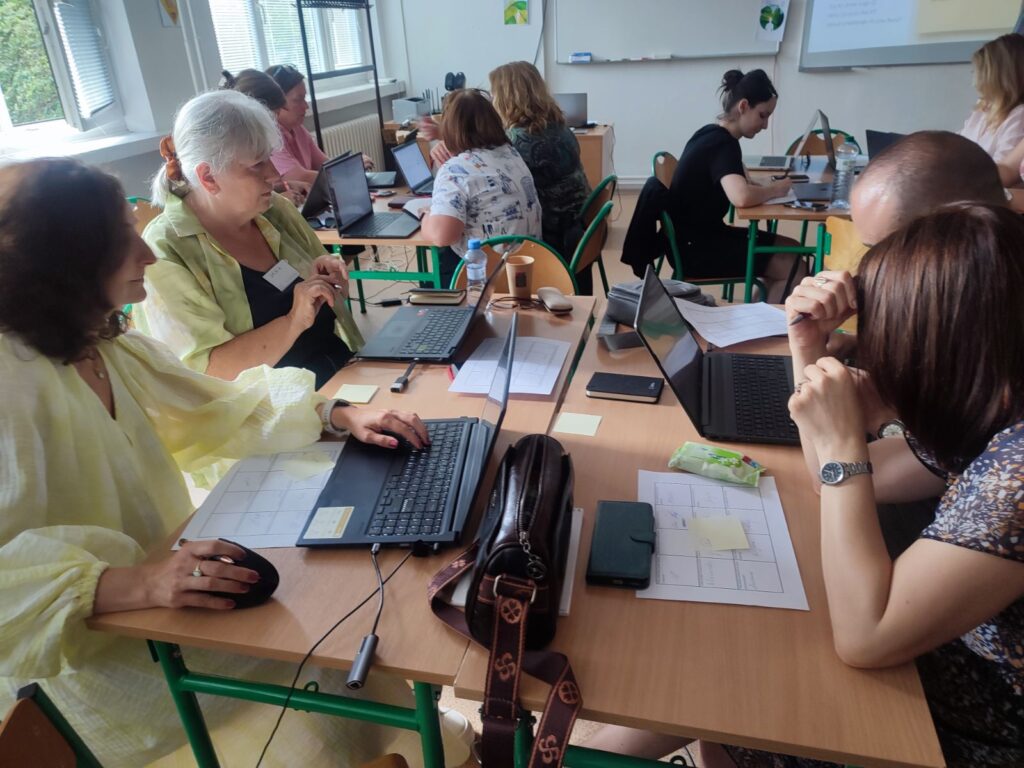
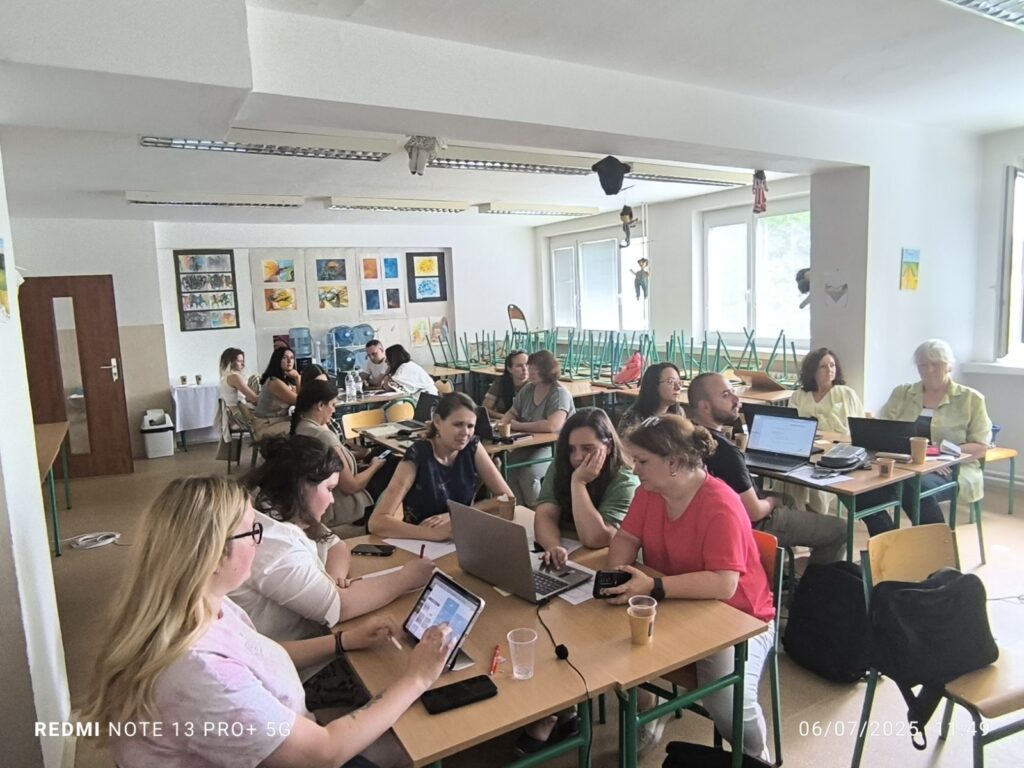
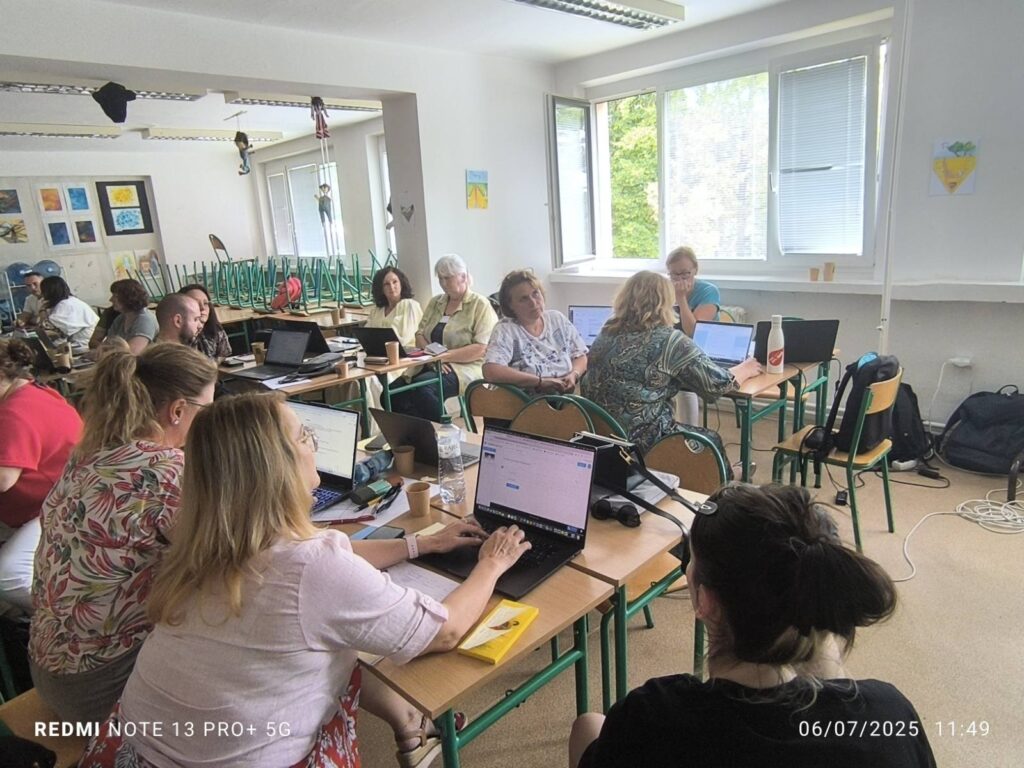
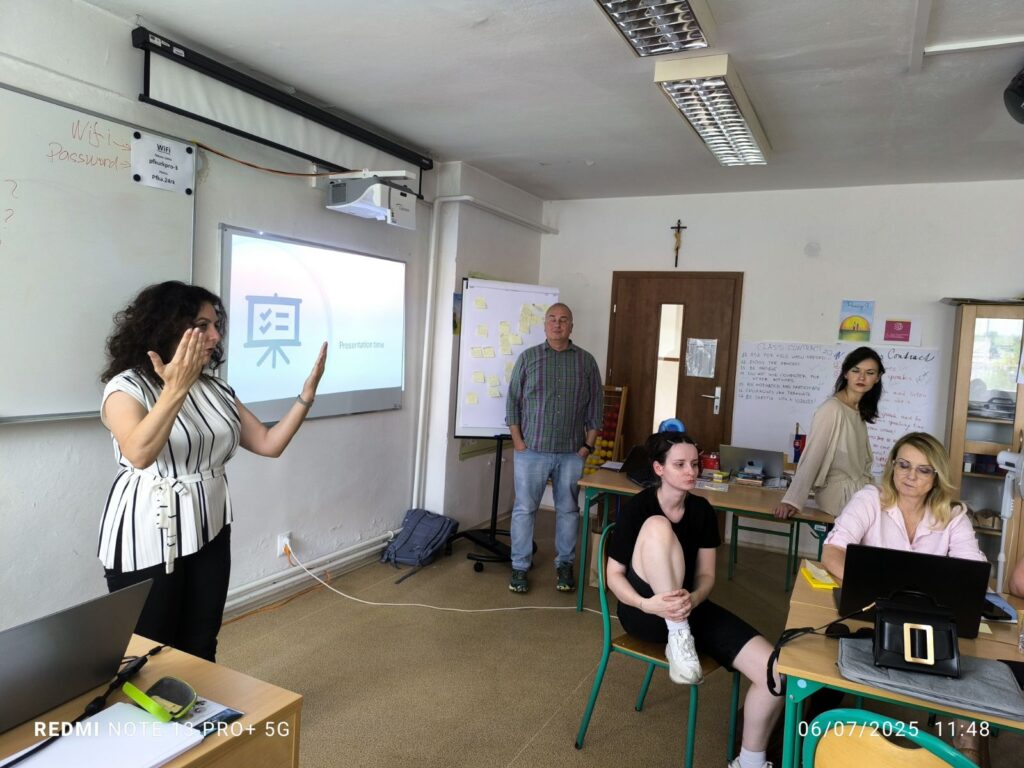
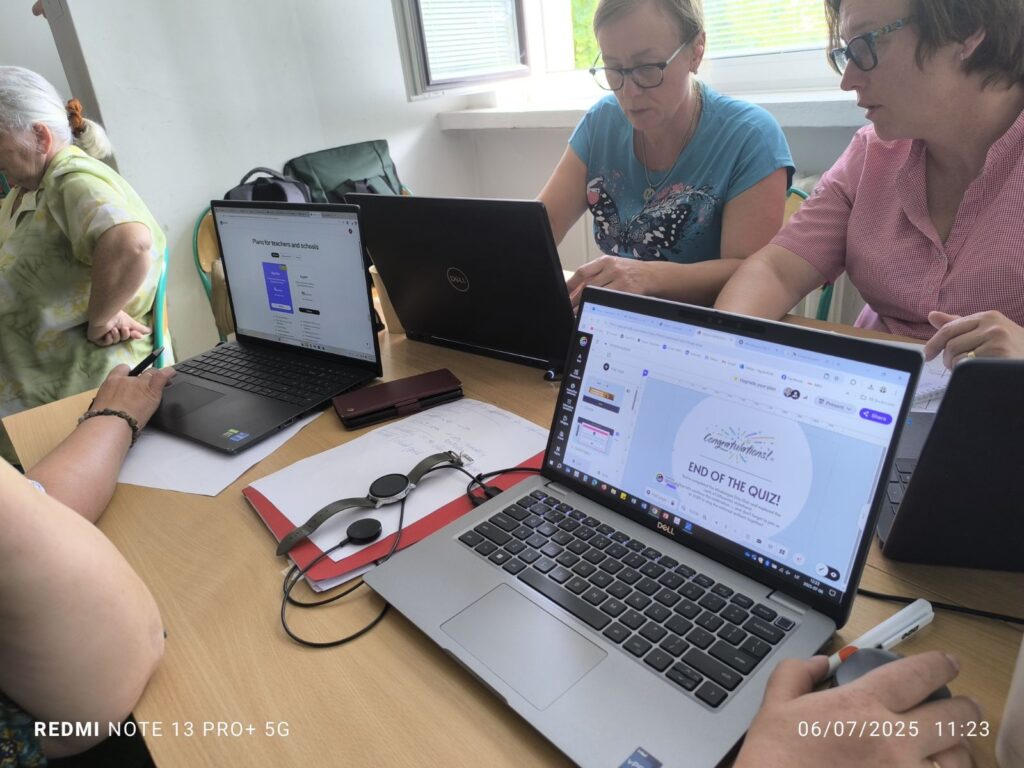
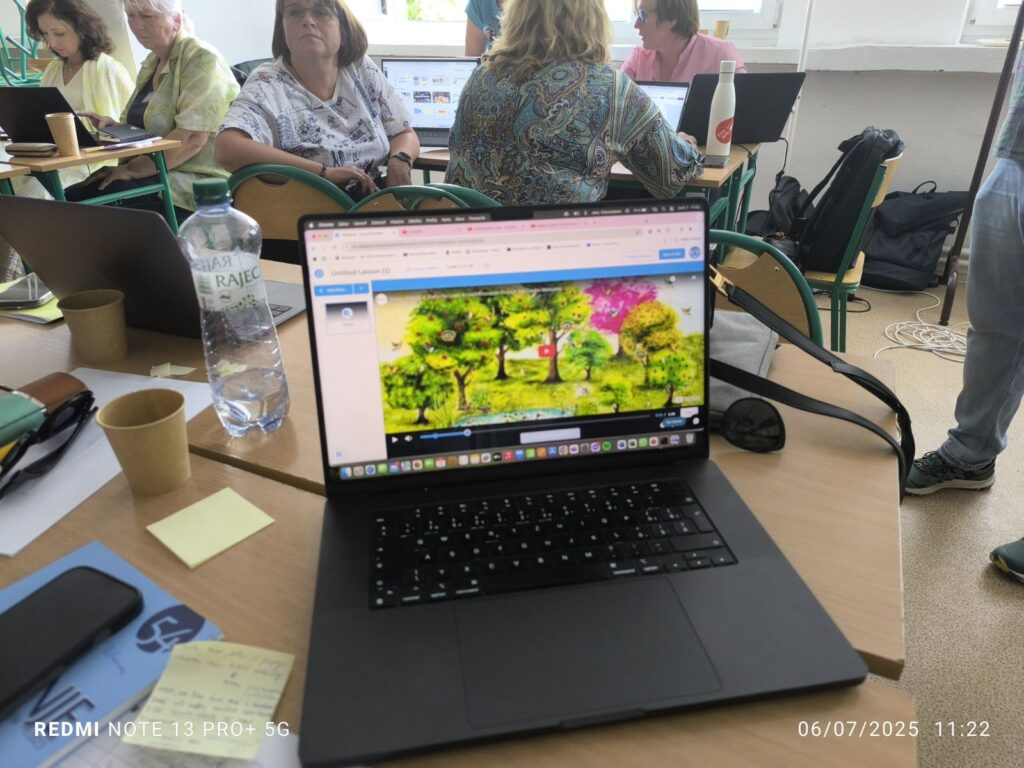
Day 2: Gamified Formative Assessment and Artificial Intelligence in Education
On the second day, the focus shifted to technology-supported formative assessment and the role of artificial intelligence in the classroom. Participants were introduced to gamified assessment tools such as Kahoot and Quizizz and engaged in a hands-on activity to design their own interactive quizzes and formative assessment materials. In the second part of the session, participants explored the potential of AI in education, testing tools like ChatGPT, AI-based chatbots, and image generators. They considered the practical classroom applications of AI, including generating prompts, visual content, and dialogue-based learning experiences. A key discussion centered on the ethical considerations of AI use in education and how to responsibly introduce these tools to students. Through group activities, educators shared strategies for fostering critical thinking and digital responsibility when using AI with learners.
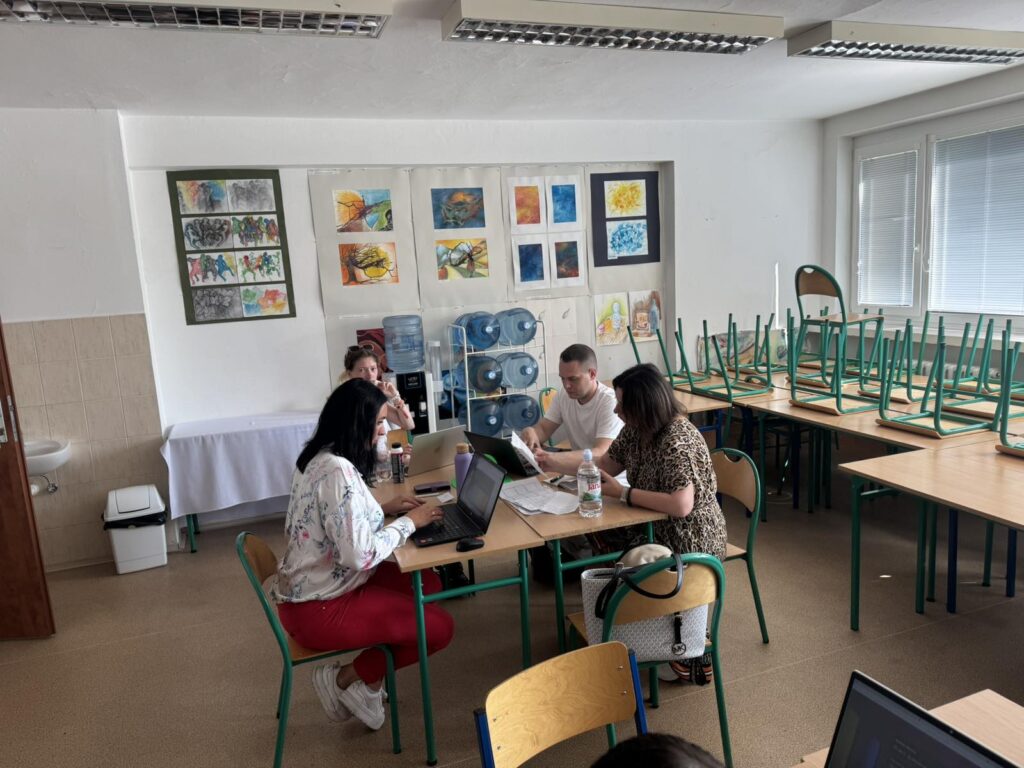
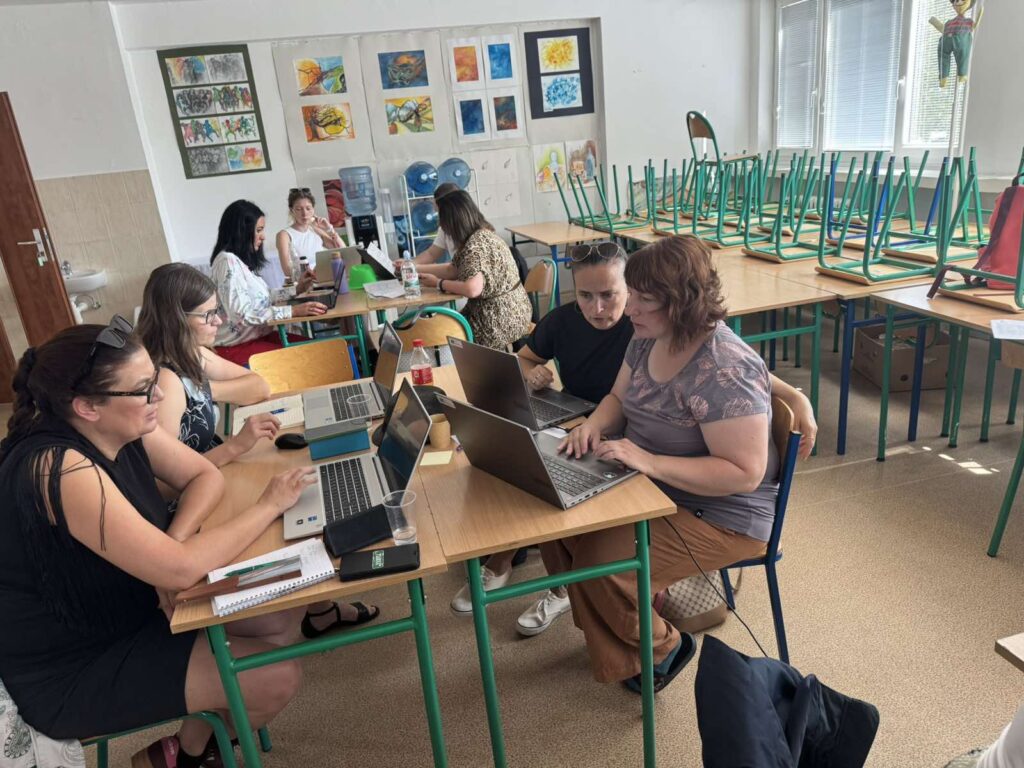
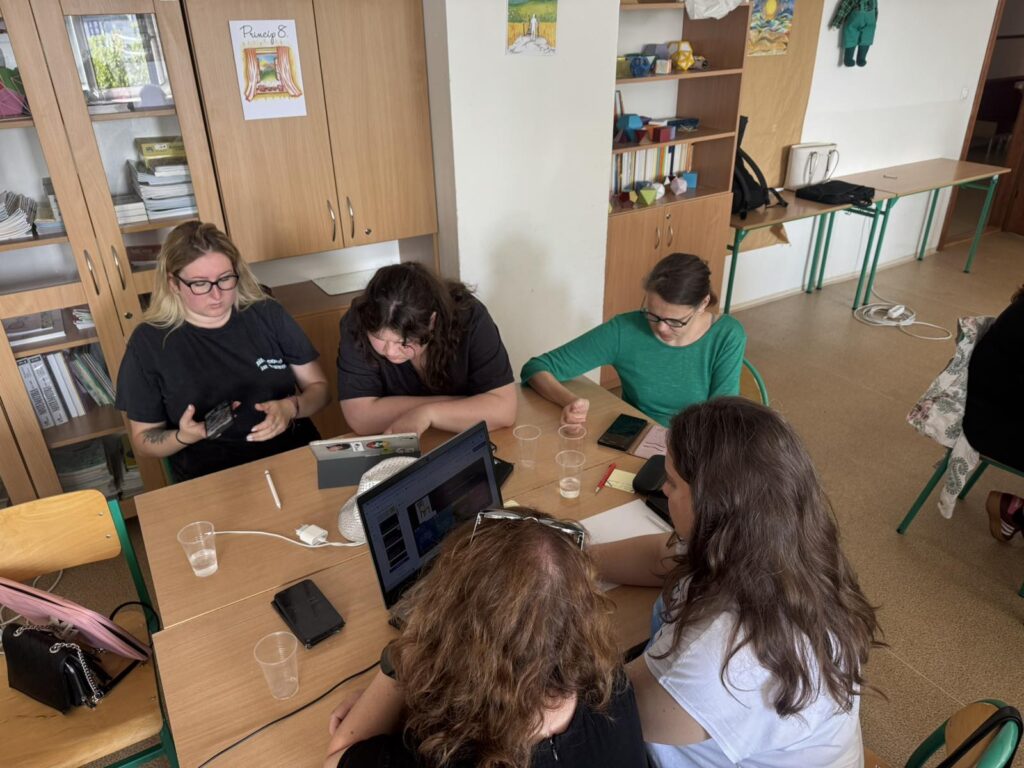
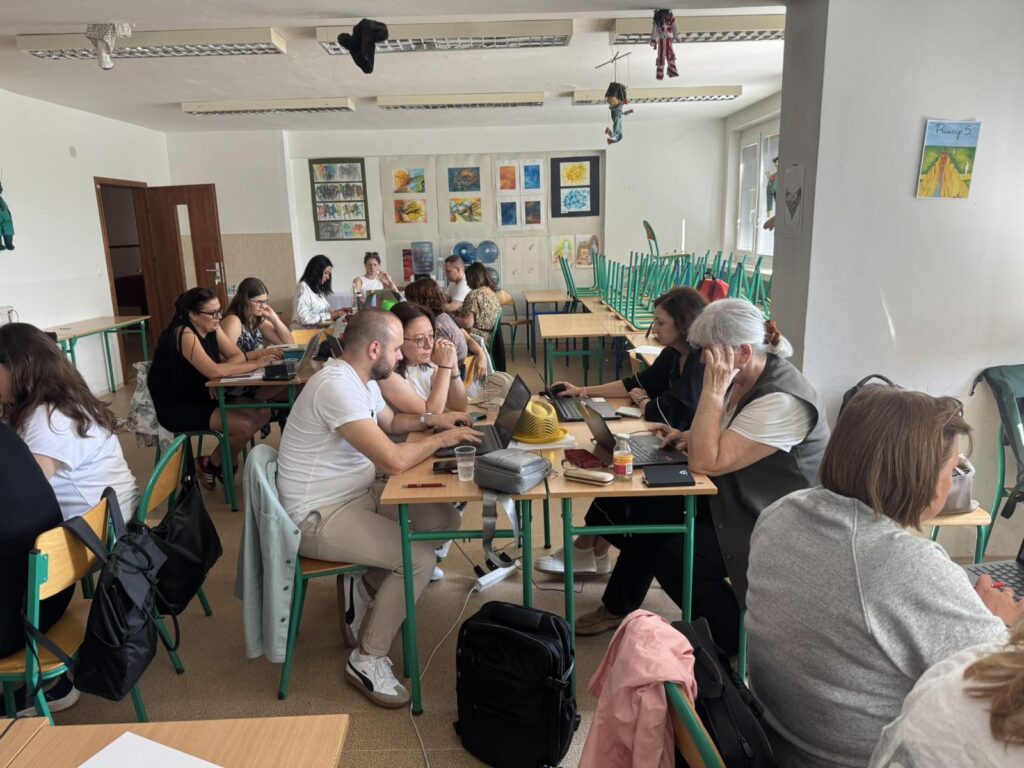
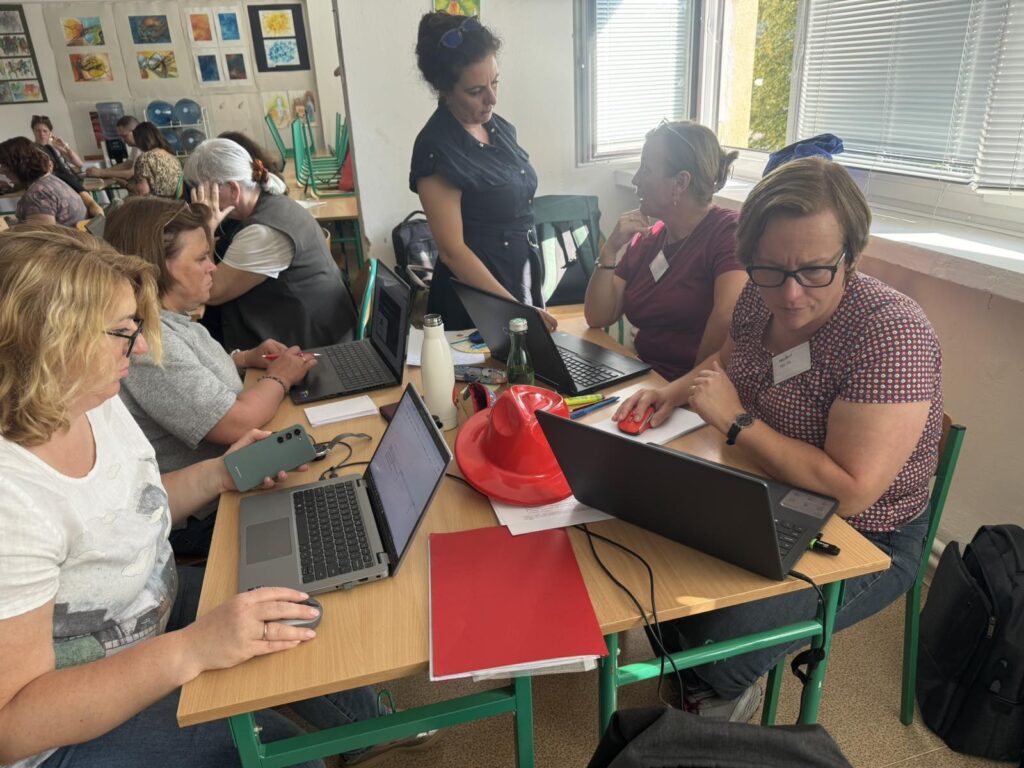
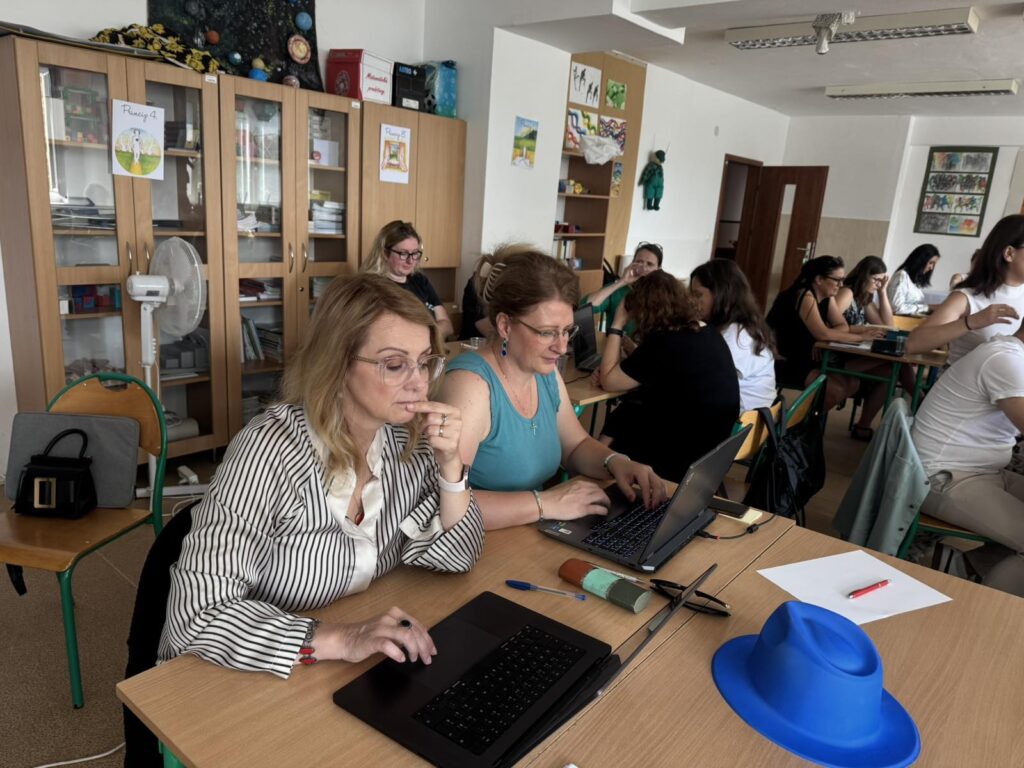
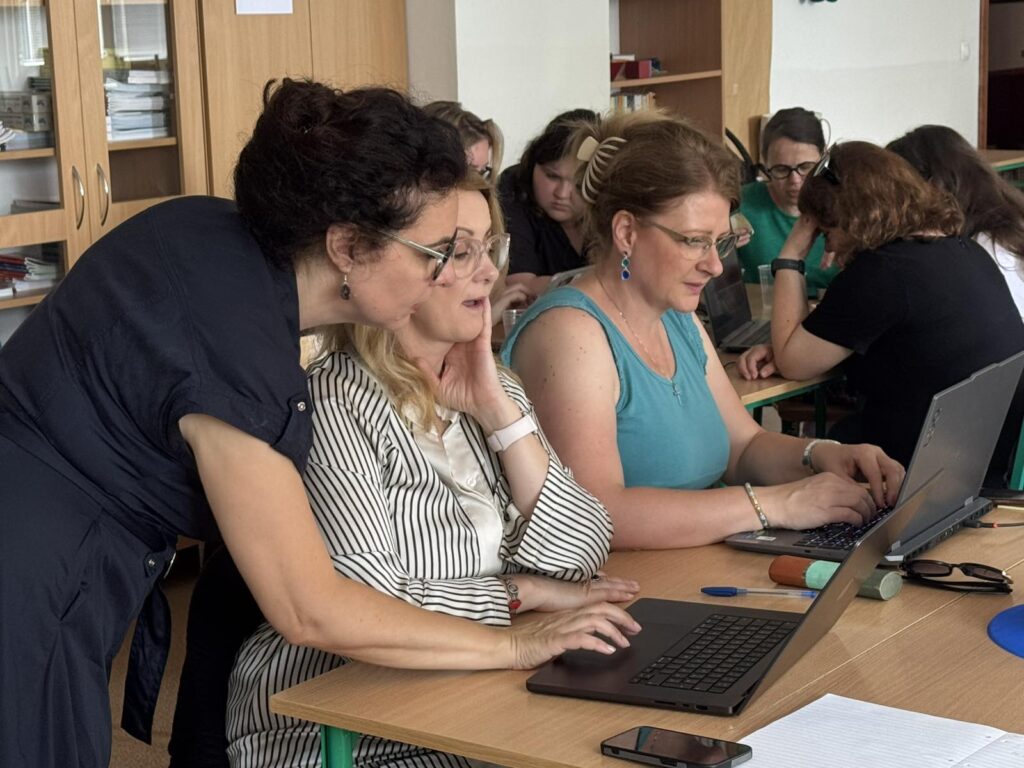
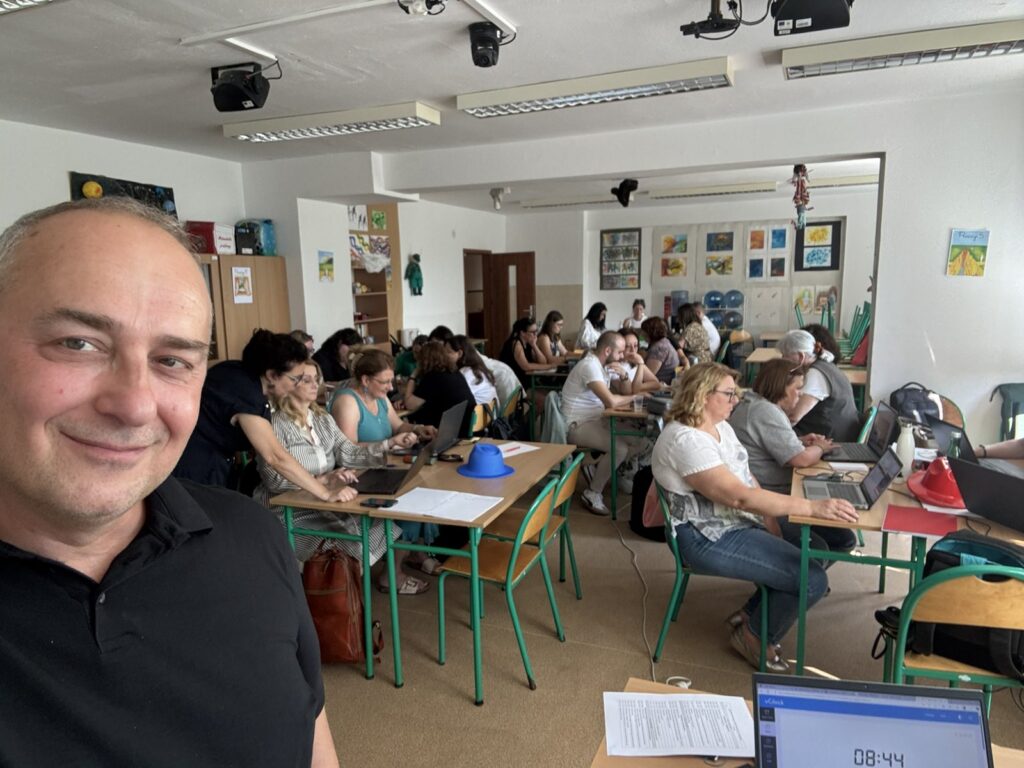
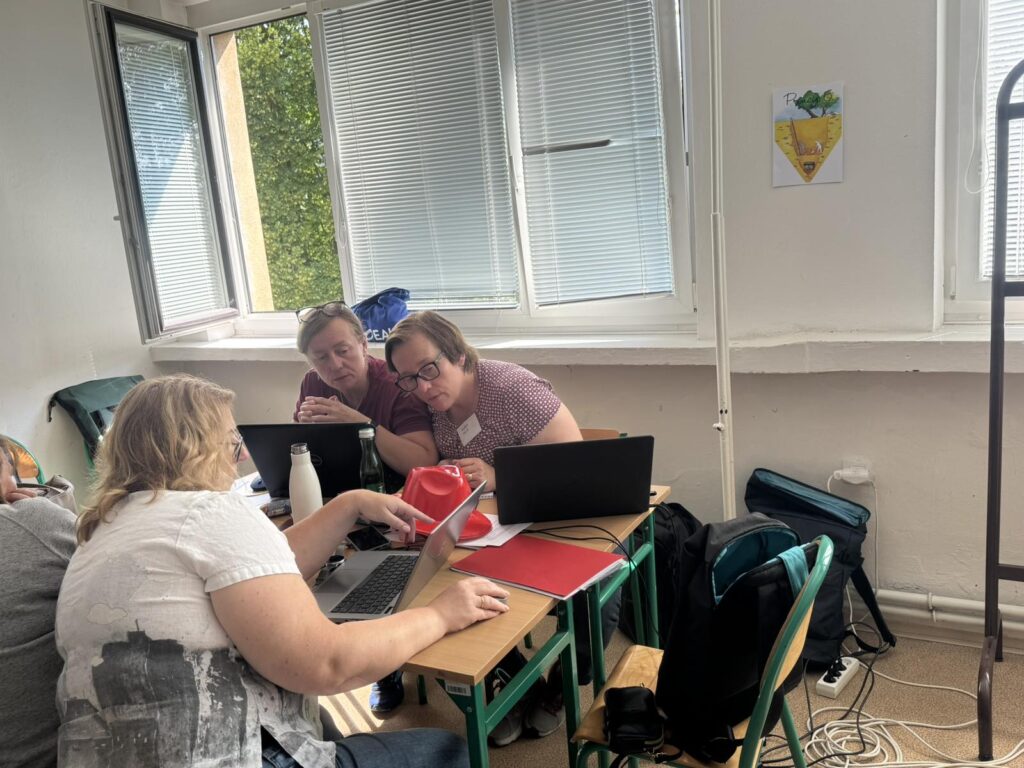
Day 3: Designing Technology-Enhanced, Learner-Centered Lessons
The final day provided an opportunity for participants to apply everything they had learned by designing full, technology-integrated lesson plans. Using tools such as Canva, Curipod, and MagicSchool AI, they worked both individually and in groups to create engaging, student-centered activities tailored to their own teaching contexts. The session included structured time for peer feedback and reflection on what worked well during the design process. Educators also drafted personalized classroom implementation plans to ensure the sustainable application of the strategies developed during the training. The day concluded with a collaborative reflection session in which participants shared their key takeaways, commitments, and next steps for integrating technology into their practice.
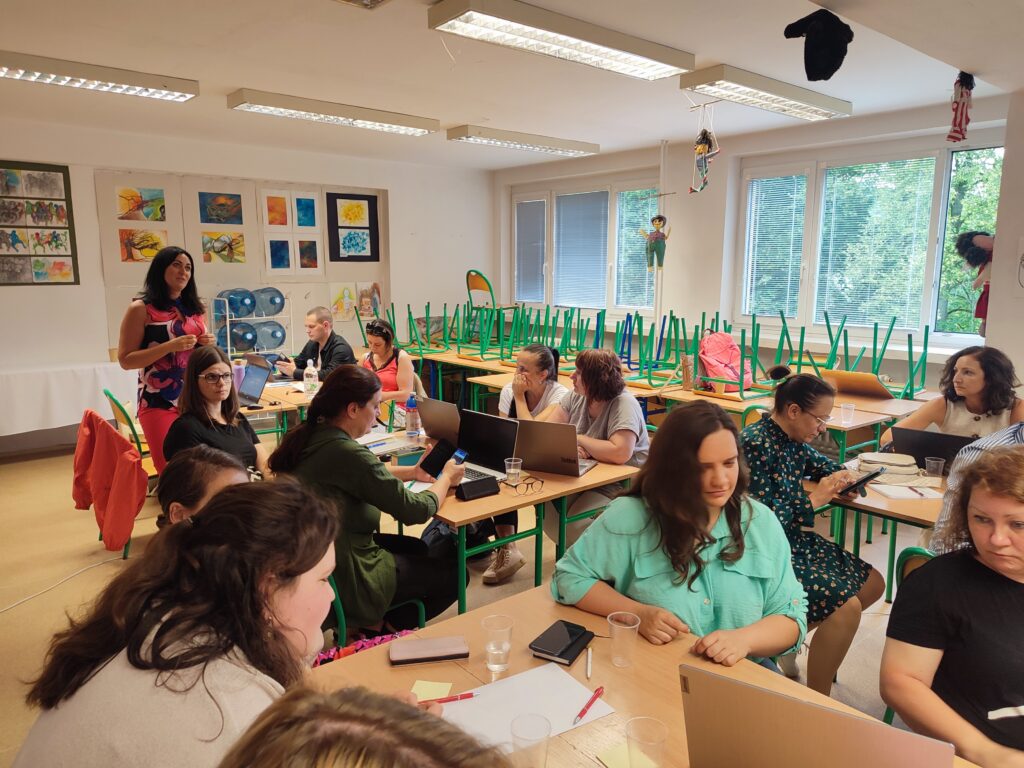
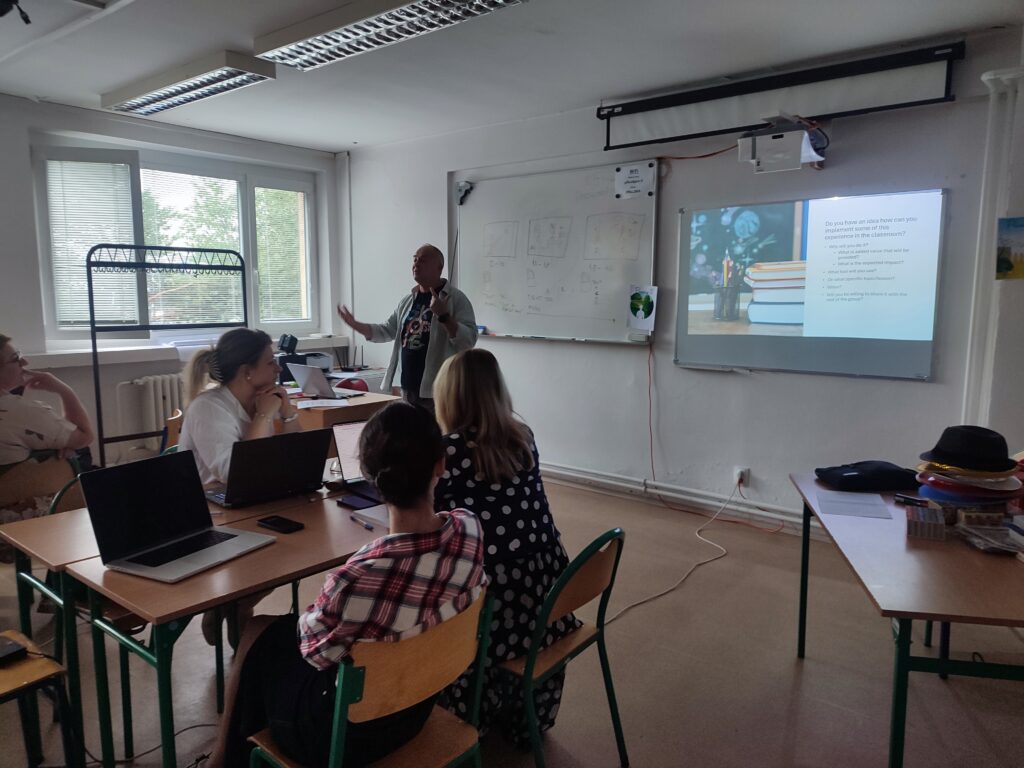
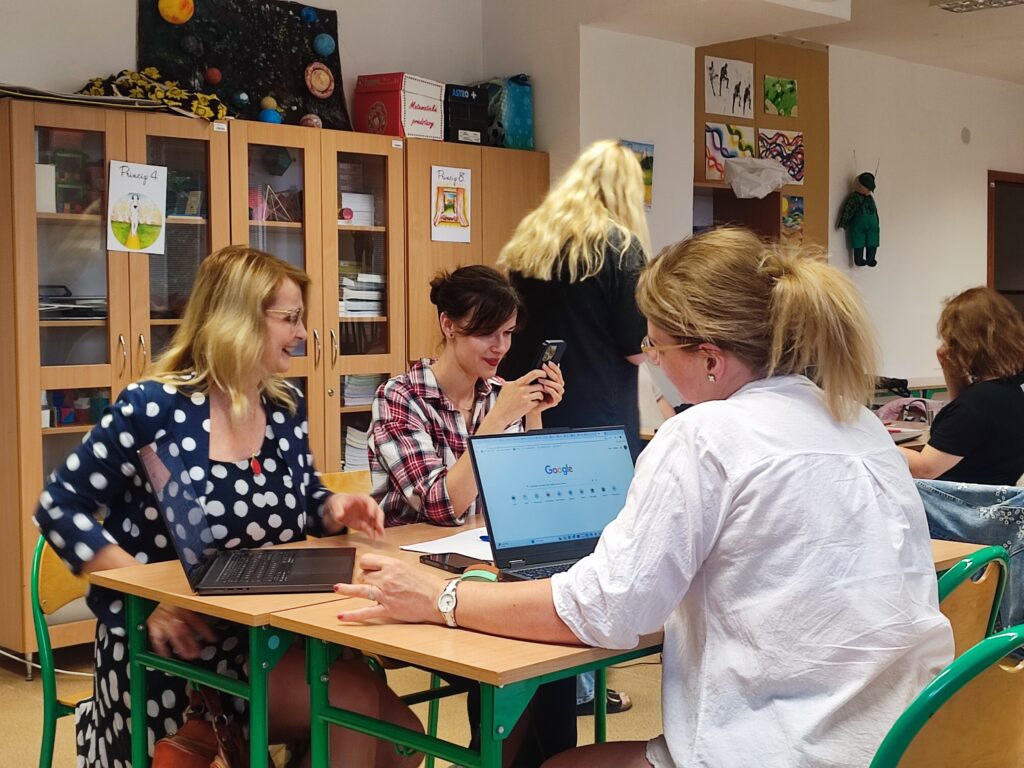
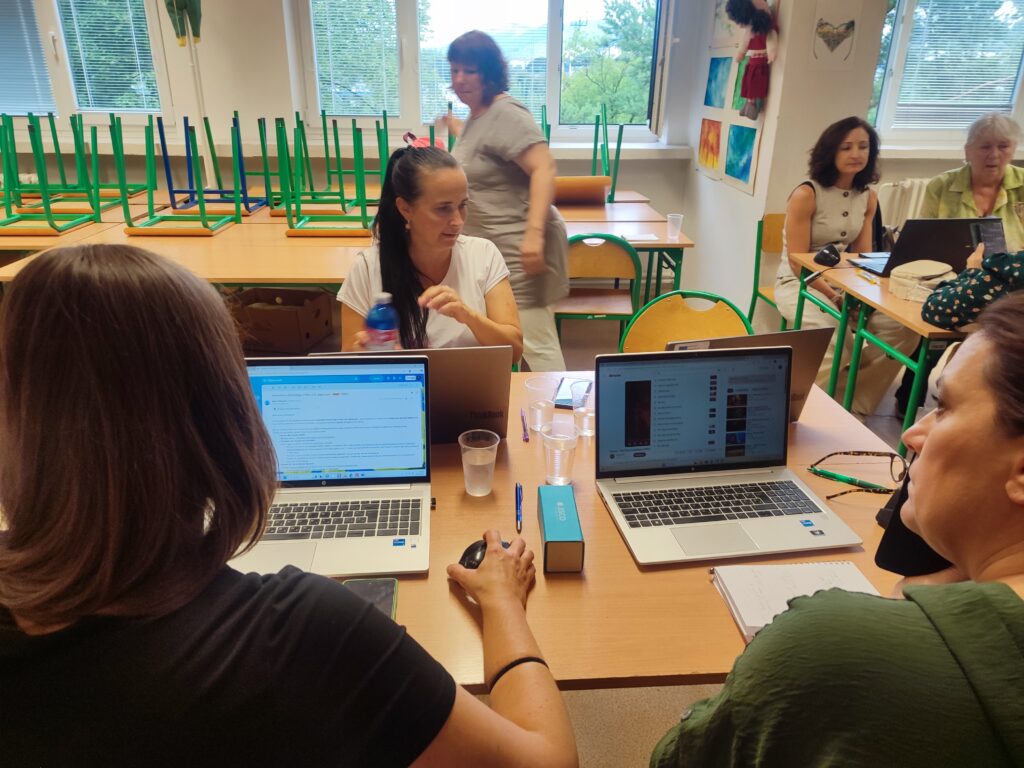
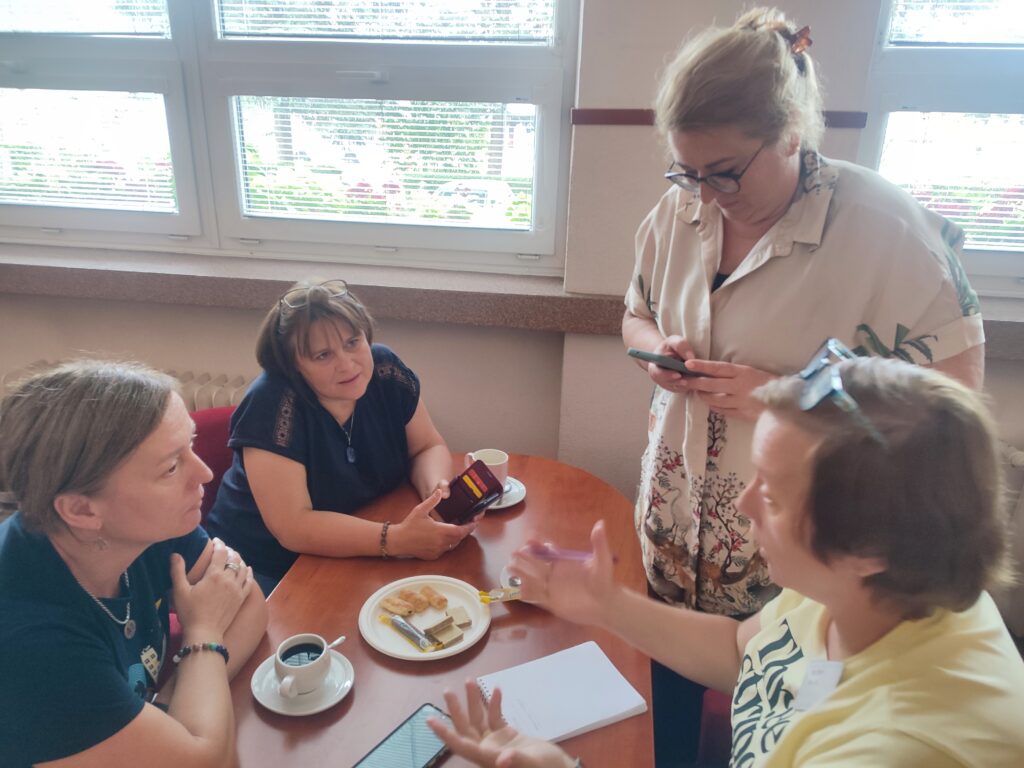
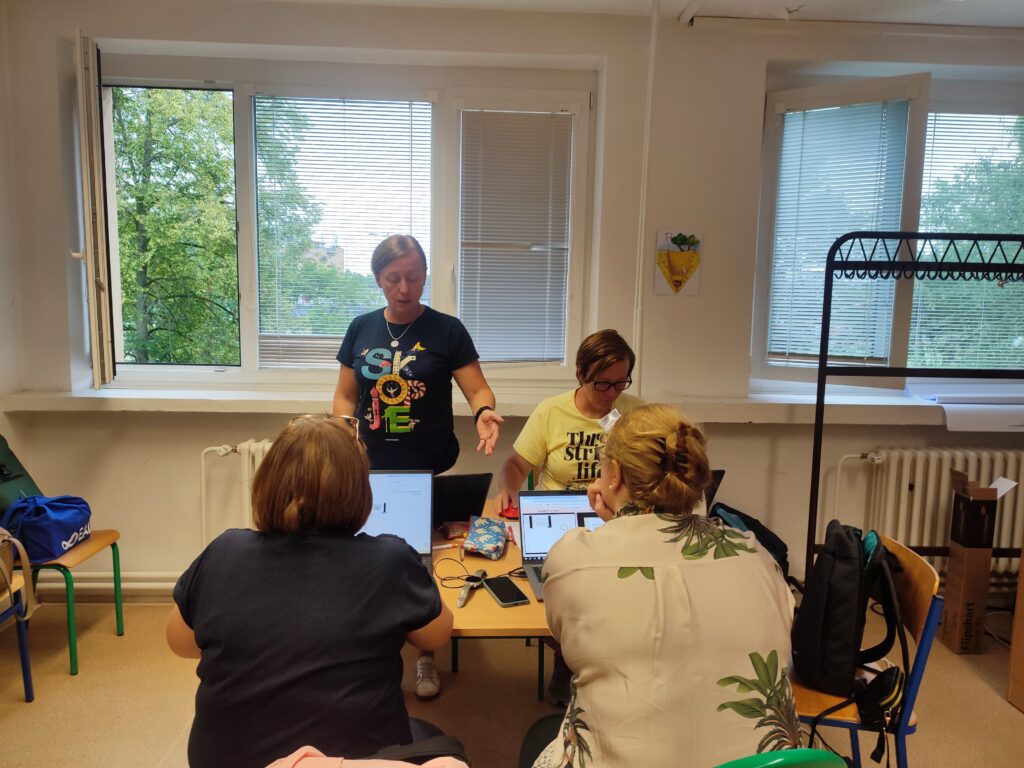
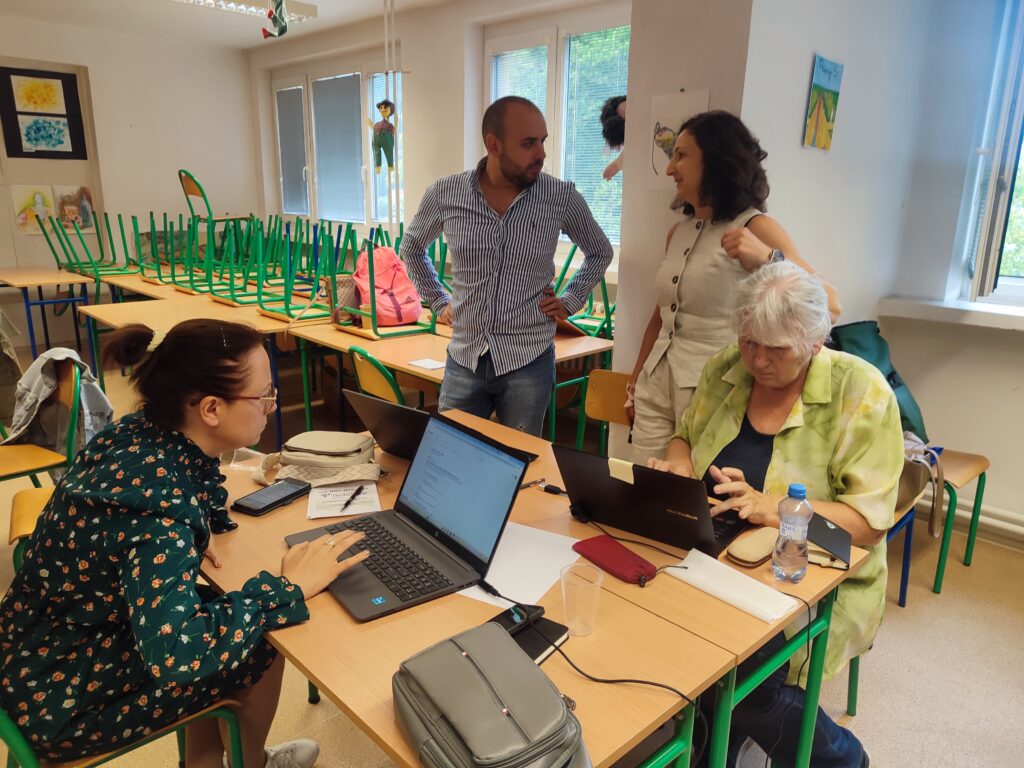
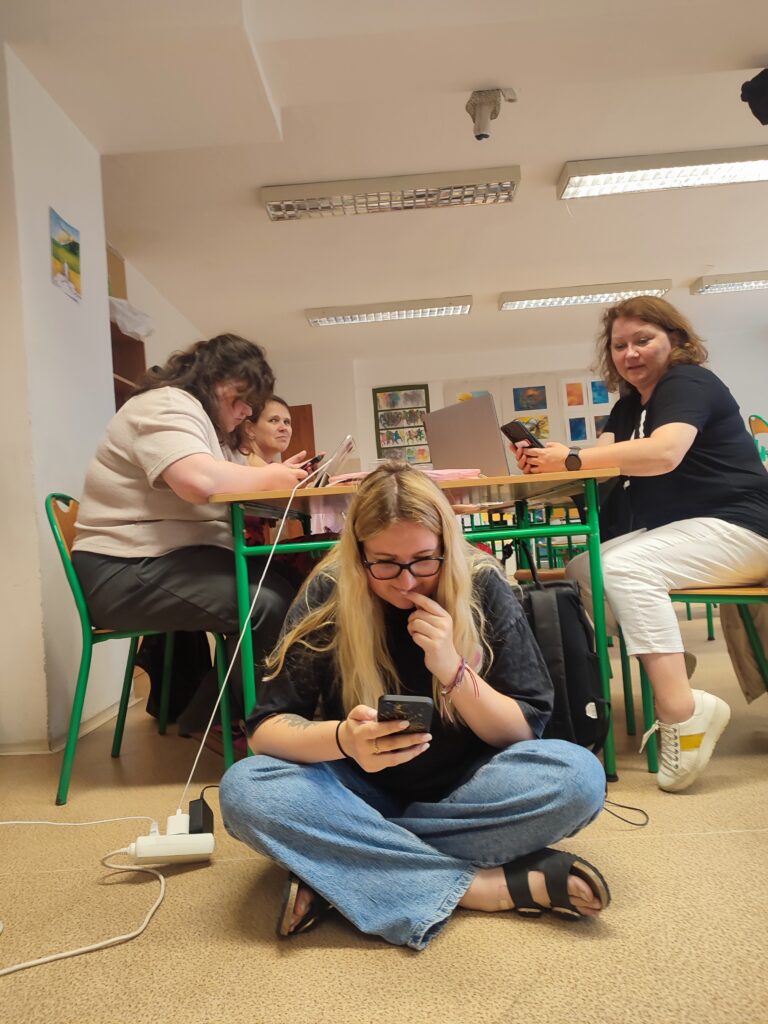
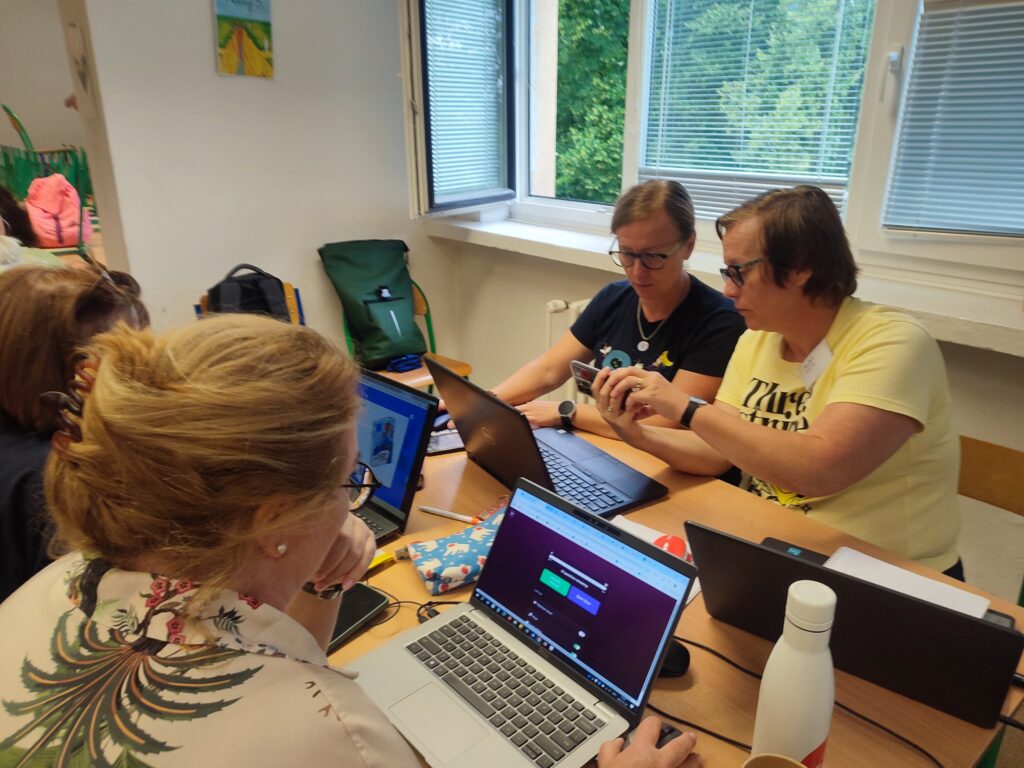
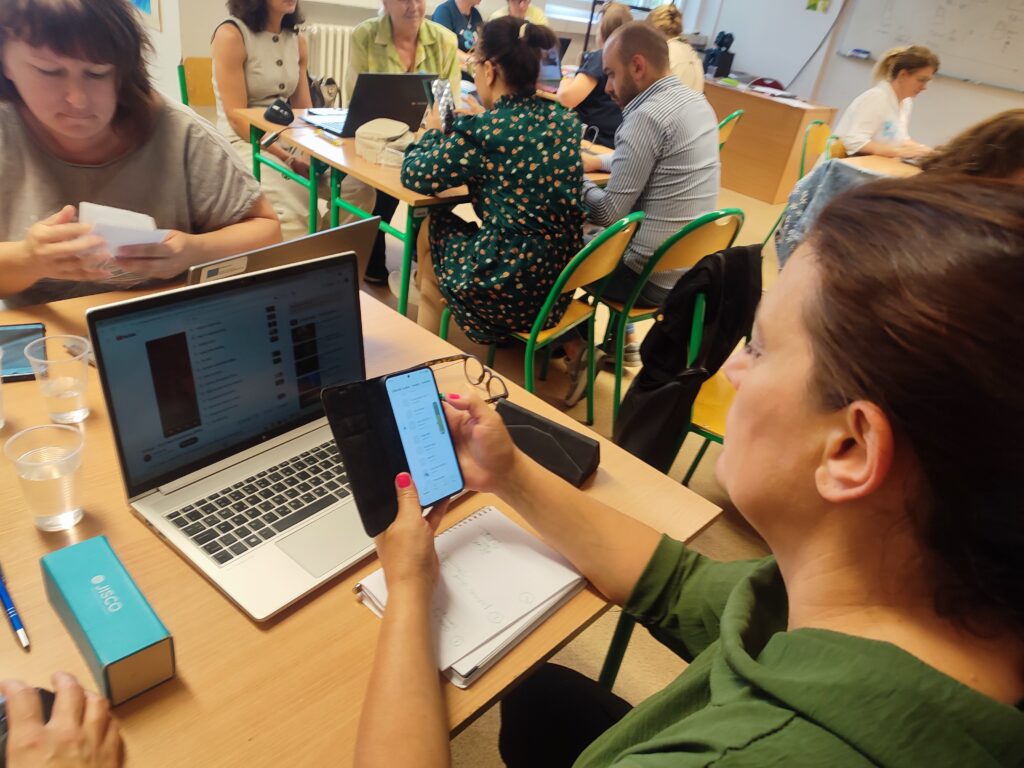
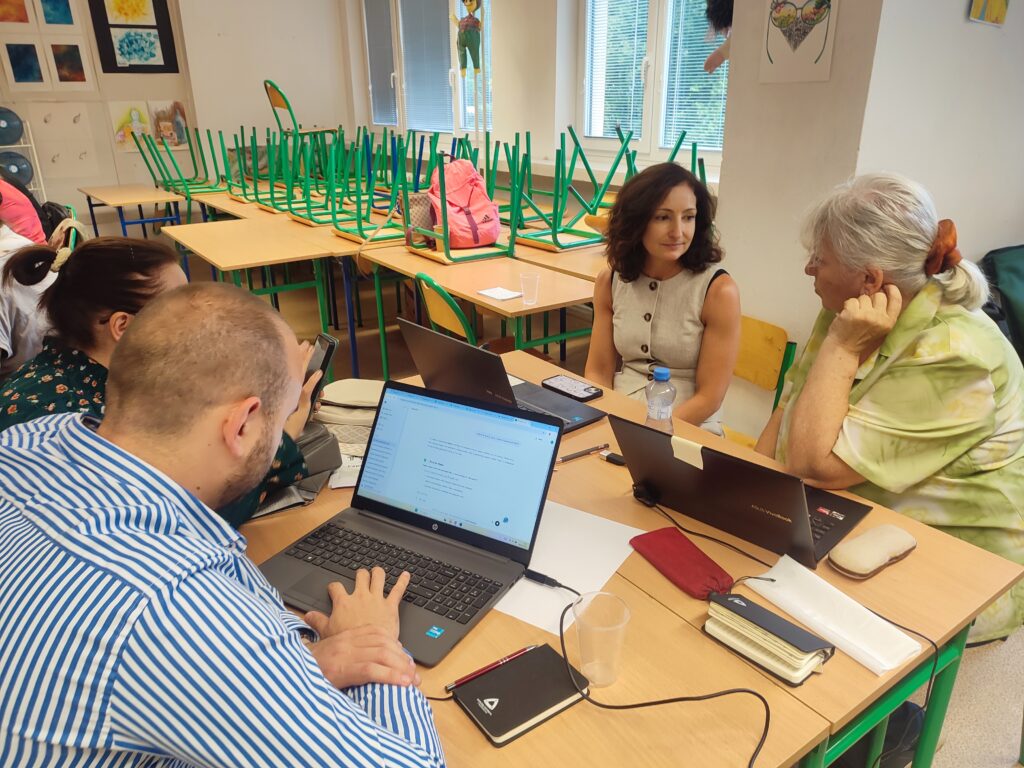
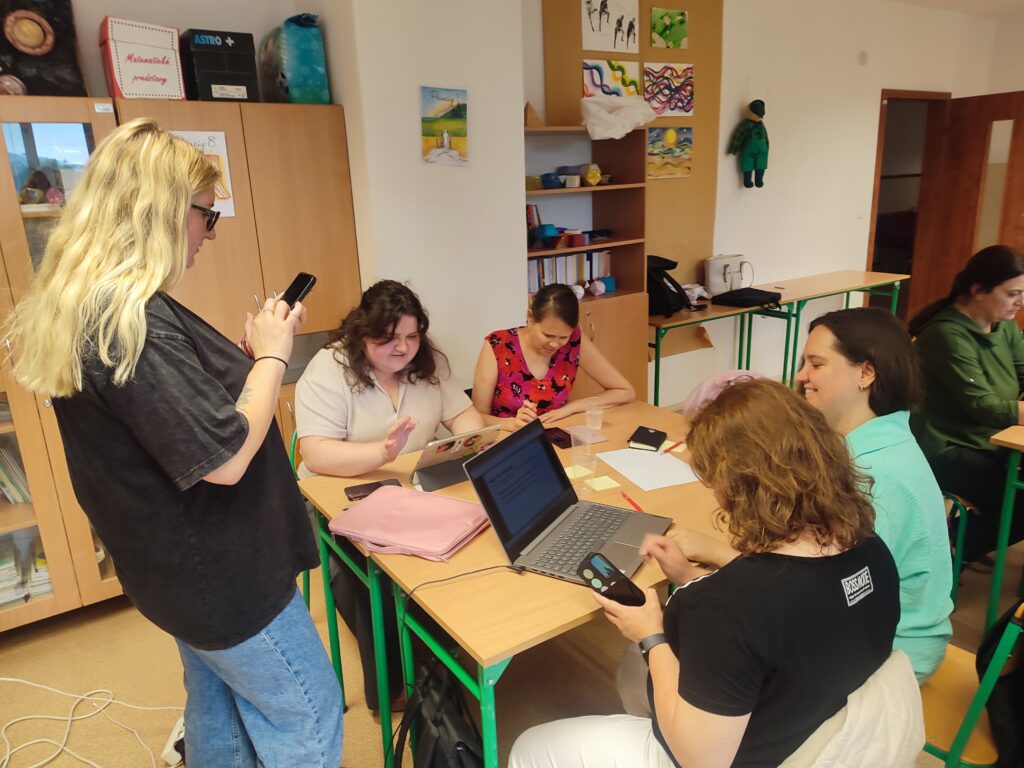
The training successfully achieved its objectives. Participants deepened their understanding of learner-centered pedagogy supported by digital tools and gained confidence in evaluating and applying a wide range of technologies. They developed original, engaging lesson materials tailored to their students’ needs, and designed actionable implementation plans to integrate these strategies into their own teaching practice.
Most importantly, the training fostered a collaborative professional learning community, where educators exchanged ideas, gave and received peer feedback, and reflected critically on their role in preparing students for a digital future. The hands-on nature of the onsite sessions, combined with the strategic use of innovative tools, created a rich and transformative professional development experience.
